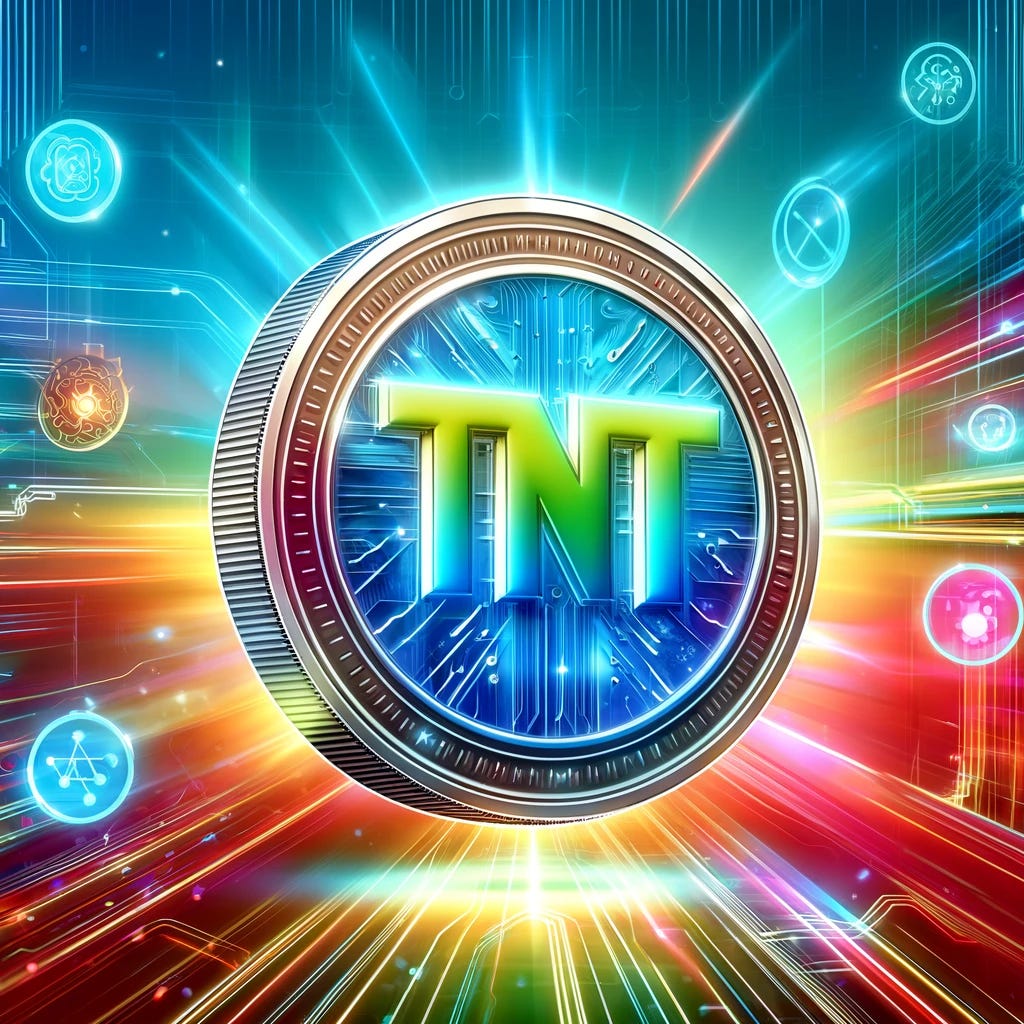Why Should We Use TNT Instead of Other Cryptocurrencies?
Introduction: The Black Paper Manifesto
Welcome to the world of the Black Paper, where we cut through the bullshit and tell it like it is. In this no-holds-barred critique, we’re diving deep into the failings of the big-name cryptocurrencies and making the case for why TNT is the real deal. If you’re looking for sugar-coated platitudes, turn back now. We’re here to dismantle the myths, expose the frauds, and reveal the raw truth about the crypto landscape.
Satoshi Nakamoto: The Cloaked Conundrum
Let’s start with the so-called "genius" behind Bitcoin, Satoshi Nakamoto. The anonymity of Nakamoto has sparked countless conspiracy theories, but let’s cut to the chase. The lack of reference to crucial economic and game theory literature (think Nash, Akerlof, Jensen, and Meckling) in Bitcoin’s white paper is a glaring oversight. This isn’t just a minor slip-up; it’s a fundamental flaw that undermines Bitcoin’s credibility as a robust economic system.
The Case Against Bitcoin: A Half-Baked Solution
Bitcoin is often hailed as the pioneer of cryptocurrencies, but pioneering doesn’t equal perfection. Bitcoin’s reliance on proof-of-work is an environmental disaster, and its transaction speeds are laughably slow. Moreover, its deflationary model promotes hoarding rather than spending, stagnating the economy it’s supposed to revolutionize.
Ethereum: A Platform of Broken Promises
Ethereum promised a world of decentralized applications and smart contracts, but it’s been plagued by scalability issues, security breaches, and high transaction fees. The much-anticipated transition to Ethereum 2.0 is a pipe dream, continually delayed and fraught with technical hurdles. If you’re betting on Ethereum, you’re betting on a perpetually unfinished project.
Solano, Cardano, Ripple: The Wannabes
Solano, Cardano, and Ripple are often touted as the next big things, but they’re just more of the same. Solano’s network outages, Cardano’s painfully slow development process, and Ripple’s legal battles with the SEC are red flags that can’t be ignored. These projects promise the moon but deliver dirt, leaving investors disillusioned and out of pocket.
TNT: The Unvarnished Truth
Now, let’s talk about TNT. Unlike the overhyped alternatives, TNT is designed with a deep understanding of mathematical economics and game theory. It’s built to mitigate fraud and facilitate honest transactions through a well-structured equilibrium model. With TNT, you’re not just investing in another cryptocurrency; you’re investing in a system grounded in robust theoretical foundations and practical efficiency.
Conclusion: The Black Paper Verdict
In this Black Paper, we’ve stripped away the pretenses and laid bare the harsh realities of the crypto world. TNT stands out not because it’s another flashy name in the market but because it addresses the fundamental flaws ignored by others. If you’re ready to move past the hype and invest in a cryptocurrency that truly delivers, TNT is your answer.
So there you have it. If you’re tired of the bullshit and ready for something real, it’s time to go TNT. And for those who can’t handle the truth, well, you know where the door is.
Why Are We So Confident?
Under a properly formed Nash equilibrium, which Transparent Network Technology (TNT) achieves via batch processing, full transparency (equal knowledge about all pending payments) is ensured for all peer-to-peer nodes. This makes committing any type of fraud in the TNT True-NO-Trust system—such as convincing a gullible client that a used car they are being sold is not a lemon (Akerlof, "The Market for Lemons")—infeasible. In the case of crypto, the perpetrator could bounce checks due to information asymmetry about pending fund transfers. By fully eradicating all information asymmetry through batch processing, TNT makes bank money fraud, such as double spending coins, absolutely impossible—not only in theory but also in fact.
Indeed, TNT has at least two huge advantages over the competition:
Because there is no mining, the cost of processing payments is essentially zero, and with not only throughput (easy 1,000 /sec version 1) but also latency (6 seconds) comparable to Visa/Mastercard.
We have far less counterparty risk of fraud facilitated by asymmetric information in payment processing than even Bitcoin, which uses as much electricity as Argentina for no other reason than the fact that Satoshi Nakamoto, or whoever wrote the 2008 Bitcoin white paper, was (and as far as we know, still is) functionally illiterate not only in game theory but also in mathematical economics. This is not just an unsupported claim but a provably true one in mathematical game theory, as the TNT white paper clearly demonstrates.
All TNT bank money can be easily made fully Anti-Money Laundering (AML) compliant by refusing to accept dirty money into a clean, AML-monitored “white” TNT bank account (or wallet).
Because all TNT transactions consist of matching debit-credit pairs that are signed by both the spender (whose account is being debited) but also the recipient, whose account is being credited funds, all TNT smart contracts become legally binding in any court of law.
Read all about it here.




